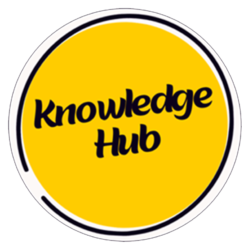
Consulting Source Material
Consulting source material is an essential step in the research process. It involves gathering information from various sources to support and enhance the quality of your research. By consulting a wide range of materials, you can ensure that your research is comprehensive, well-informed, and based on reliable evidence. In this section, we will explore the importance of consulting source material and guide how to effectively utilize different types of sources.
Importance of Consulting Source Material
Consulting source material is crucial for several reasons. Firstly, it allows you to build upon existing knowledge and theories in your field. By reviewing relevant literature, you can identify gaps in current knowledge and contribute to the advancement of your subject area. Additionally, consulting source material helps you to develop a well-rounded understanding of your research topic. It enables you to consider different perspectives, theories, and methodologies, which can enhance the validity and reliability of your findings.
Furthermore, consulting source material helps you to avoid duplication of research. By familiarizing yourself with existing studies, you can ensure that your research is original and adds value to the existing body of knowledge. It also allows you to identify potential collaborators or experts in your field who can provide valuable insights and guidance.
Types of Source Material
When consulting source material, it is important to consider a variety of sources to ensure a comprehensive and balanced approach.
Here are some common types of source material that you can consult:
Academic Journals: Academic journals are a valuable source of peer-reviewed research articles. They provide in-depth analysis, methodology, and results of studies conducted by experts in the field. Journals are often considered the most reliable and credible source of information.
Books: Books are another important source of information, especially for gaining a broader understanding of a topic. They often provide comprehensive coverage of a subject and can offer historical context, theoretical frameworks, and practical applications.
Conference Proceedings: Conference proceedings contain research papers presented at academic conferences. They provide access to the latest research findings and emerging trends in a particular field. Conference papers are often more current than journal articles, as they are published relatively quickly after the conference.
Government Reports: Government reports can be valuable sources of information, particularly for research related to policy, regulations, or public health. These reports often provide data, statistics, and analyses conducted by government agencies or research institutions.
Databases: Online databases, such as PubMed, Scopus, or Web of Science, are excellent resources for finding scholarly articles, conference papers, and other research materials. These databases allow you to search for specific keywords, authors, or topics, making it easier to find relevant sources.
Websites: While websites can be a useful source of information, it is important to critically evaluate their credibility and reliability. Government websites, reputable organizations, and academic institutions are generally more reliable sources compared to personal blogs or commercial websites.
Effective Utilization of Source Material
To effectively utilize source material, it is important to develop good research skills and strategies.
Here are some tips to help you make the most of your source material:
- Organize and manage your sources: Keep a record of all the sources you consult, including bibliographic information such as author names, publication dates, and page numbers. This will make it easier to cite your sources accurately and avoid plagiarism.
- Read critically: When consulting source material, read actively and critically evaluate the information presented. Consider the author’s credentials, the methodology used, and the validity of the findings. Look for any biases or limitations that may affect the reliability of the source.
- Take notes and highlight key points: As you read, take notes and highlight key points that are relevant to your research. This will help you remember important information and make it easier to refer back to specific details later on.
- Synthesize information: Once you have gathered information from multiple sources, synthesize the information to identify common themes, trends, or gaps in the existing literature. This will help you develop a coherent and well-supported argument in your research.
- Acknowledge and cite your sources: It is essential to properly acknowledge and cite all the sources you consult. This not only gives credit to the original authors but also allows readers to verify and access the sources themselves. Follow the appropriate citation style recommended by your institution or publisher.
By consulting a wide range of source materials and effectively utilizing the information gathered, you can strengthen the validity and reliability of your research. Remember to critically evaluate your sources, organize your references, and properly cite all the materials you consult.
